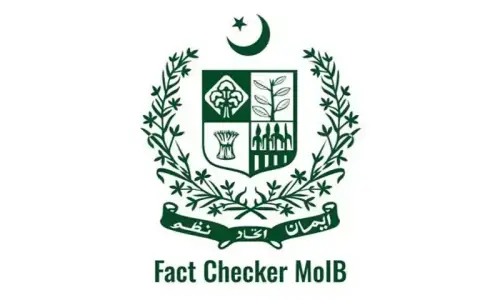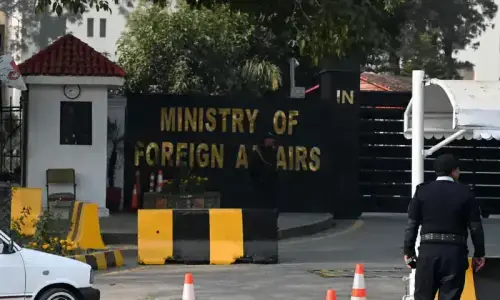ISLAMABAD: Pakistan ranked among 42 countries alongside all its neighbours in the World Press Freedom Index’s ‘red’ category, where the press freedom is entirely absent and practising journalism is particularly dangerous, harbouring over half of the world’s population (56.7 per cent).
Reporters Without Borders in its 2025 World Press Freedom Index painted a bleak picture for media freedom, with economic pressure emerging as the leading threat to press freedom across the globe. In a statement, the media watchdog said their results had warned of a worldwide decline in press freedom over the past ten years, but the 2025 report was a new low for the media.
“In 2025, a new low point emerged: the average score of all assessed countries fell below 55 points, falling into the category of a ‘difficult situation’,” said the report, adding that more than six out of ten countries (112 in total) saw their overall scores decline in the index.
Reporters Without Borders reports ‘new low’ for media as average score of all countries falls below 55; freedom ‘entirely absent’ in Pakistan
“For the first time in the history of the index, the conditions for practising journalism are poor in half of the world’s countries and satisfactory in fewer than one in four,” it said. According to the listicle shared by the RSF, 42 countries have ‘good’ or ‘satisfactory’ ratings in the index but almost 138 countries have been categorised in problematic, difficult, and very serious situation, in terms of press freedom. Pakistan (158th rank) is in the ‘very serious situation’ category alongside India, China, Afghanistan, and Iran.
The same is the case in Palestine (163rd), where the Israeli army has been annihilating journalism for over 18 months, killing nearly 200 media professionals — including at least 43 murdered while working — and imposing a blackout on the besieged strip. Israel (112th) also continued its decline.
Financial constraints
The report said the financial condition of journalism and economic pressure on the industry dragged down the world’s overall score in 2025, adding that in nearly a third of countries, media outlets were shutting down due to economic hardships, with the US leading the trend.
It said 160 states out of 180 assessed by the RSF achieved financial stability “with difficulty” or “not at all”, adding that 34 countries, including Iran, Azerbaijan, and Afghanistan, stood out for the mass closures of their media outlets, leading to the exile of journalists in recent years.
Another threat to media freedom pointed out by the RSF is the media concentration and dominance of online platforms, such as Meta, Google, and Amazon. “…serious funding cuts are an additional blow to a media economy already weakened by the dominance that tech giants such as Google, Apple, Facebook, Amazon and Microsoft have over the dissemination of information. These largely unregulated platforms are absorbing an ever-growing share of advertising revenues that would usually support journalism,” the report said, adding that the total spending on advertising through social media reached $247.3 billion in 2024, a 14 per cent increase compared to 2023.
In addition to the loss of advertising revenue, which has severely disrupted and constrained the media economy, media ownership concentration is another key factor in the deterioration of the Index’s economic indicator and poses a serious threat to media plurality.
Published in Dawn, May 2nd, 2025































